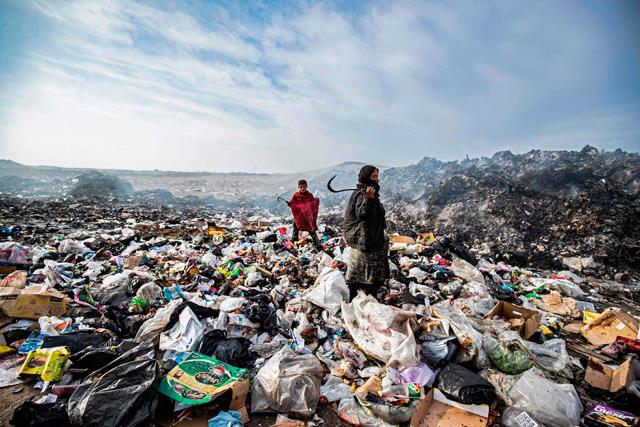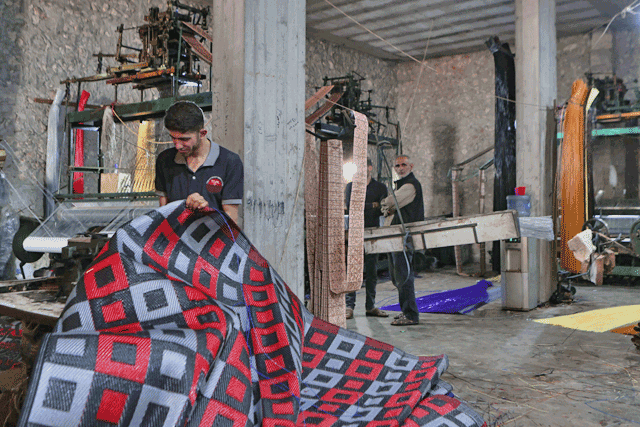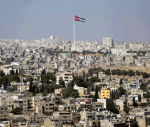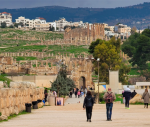You are here
Beyond the oil wells, Syrians rummage in trash to survive
By AFP - Jan 19,2021 - Last updated at Jan 19,2021

Syrians sift through a garbage dump near an oilfield in the countryside of Malikiya in northeast Syria, on January 12 (AFP photo)
AL MALIKIYAH, Syria — Plastic bottles, aluminium cans, clothes, sometimes spaghetti. When a tractor tows in fresh rubbish at a dump in northeast Syria, men, women and children rush to find the best pickings.
On the dry plains outside the city of Al Malikiyah, a dozen people wrapped up against the cold rip open the black plastic bags, in a desperate search for something to sell, repurpose or even eat.
Across the road, an oil pump swings back and forth in this resource-rich region controlled by US-backed Kurdish forces.
An armoured vehicle flying the American stars and stripes drives by on the asphalt.
At the dump, a woman in a scarf and light blue woolly hat hacks away at a pile of fuming burnt rubbish.
Another stuffs some flat bread into a bag hanging around her waist. A gloved hand reaches for the remainder of a packet of spaghetti.
Someone finds a pair of small black boots, while a child smiles, holding out a pair of jeans.
A girl sifts through the refuse with a metal pick, finding some soft drink cans she carries away in a bag slung over her shoulder.
Umm Mustafa, a mother in her forties, says she often comes to the site in search of something to help sustain her family.
“Sometimes we find oranges that are still edible or apples people have thrown away,” she said, her hands coarse and blackened by the hard work.
‘No other option’
“We take them to eat, because everything is expensive.”
Almost 10 years of war in Syria have ravaged the economy and sent the value of the Syrian pound plummeting.
Food prices have tripled across the country since November 2019, the UN food assistance agency says.
In the Kurdish-held northeast, already in 2019 more than 60 per cent of people suffered from food insecurity, according to the World Food Programme.
Umm Mustafa said her five girls, the eldest 17, often worked with her while her husband, a shepherd, looked after their small herd.
“Because of the crisis and the price hikes, we’re struggling to get by,” said the mother, whose family was displaced from their village three years ago by fighting between Kurdish fighters and the Islamic State group.
The best days are when the truck brings in food from restaurants, she said.
“Some of it is clean,” she said.
Other times, “we rummage through hospital waste despite the danger,” Umm Mustafa added.
“But we have to, because there is no other option.”
Related Articles
MOGADISHU — As the rubbish built up on the rubble of Mogadishu’s wrecked streets, Ahmed Abdullahi saw a business opportunity.He recruited a
HEZREH — At a rubbish dump in northwest Syria, Mohammed Behlal rummages for plastic to be sold to recyclers and transformed into floor rugs
TRIPOLI — Faraj Al Doukali hastened to unload the dozens of rubbish bags from his van onto a sidewalk dump in Siyahiya, a residential distri














